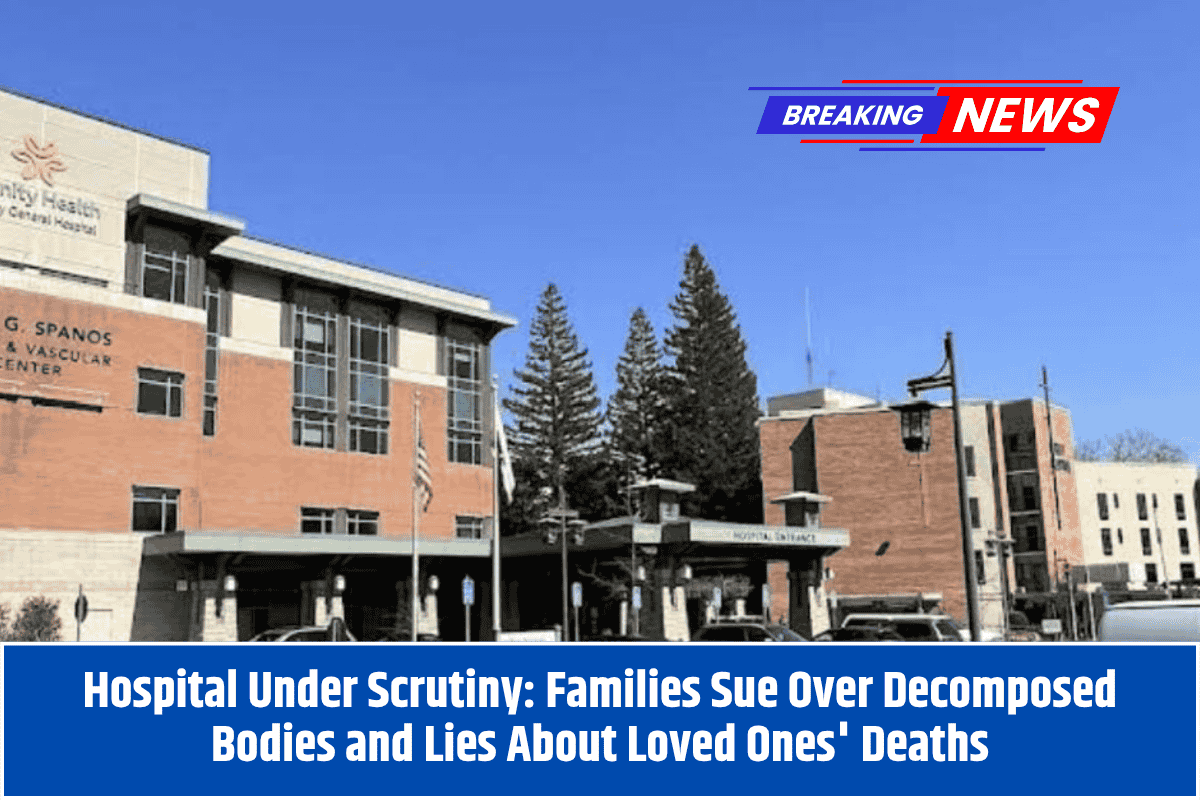Several lawsuits filed against the Dignity Health medical group in California have shed light on disturbing claims involving deceased patients.
These lawsuits allege that the hospitals mishandled the remains of individuals who died while under their care, with accusations ranging from organ harvesting without consent to deceiving families about the circumstances surrounding their loved ones’ deaths.
In some cases, the deceased were sent to offsite mortuaries where their bodies decomposed, leading to unrecognizable remains.
Disturbing Accounts from Families
The lawsuits describe heartbreaking and tragic situations where families were misled and never informed about the deaths of their loved ones. One of the most shocking stories involves Jessie Peterson, a 31-year-old woman who died at Mercy San Juan Medical Center in Sacramento on April 8, 2023.
Peterson had been hospitalized after a diabetic episode, but despite contacting her mother shortly before her death, the family was not informed when she passed away. The hospital told Peterson’s family that she had “discharged herself against medical advice,” but in reality, she had died from cardiopulmonary arrest.
Peterson’s body was allegedly left in cold storage at the hospital, forgotten for several days. Her family was unaware of her death until they filed a missing person report, leading to a year-long investigation.
When her remains were finally found in April 2024, they were in such poor condition that her tattoos were unrecognizable, and the family could not hold an open-casket funeral.
Tonya Walker’s Heartbreaking Story
Another tragic case involves 51-year-old Tonya Walker, who died at Dignity Health’s Mercy General Hospital in Sacramento on November 2, 2023. Walker had been in touch with her family but went silent on that day, prompting her family to file a missing person report.
They were unaware that she had already passed away. The lawsuit claims that Walker’s body was sent to an offsite mortuary where it decomposed in improper storage for seven months. When Walker’s family was finally notified of her death, they saw her body in a state so horrific that it was described as “unrecognizable.”
The family alleged that her organs may have been harvested without their consent, as her eyes and skin appeared to have been surgically removed.
The image of Walker’s decomposed body left a haunting memory for her family, and the lawsuit claims that this final image will “haunt them forever.” This case highlights the emotional and psychological toll such mistreatment has on grieving families, who were already struggling with the loss of their loved ones.
Michael Gray’s Case: A “John Doe” and a Missing Body
In a third case, Michael Gray died of a drug overdose at Mercy San Juan Medical Center in July 2022. Despite having identification on him, including a wallet and a cellphone, the hospital treated him as a “John Doe” and did not notify his family.
His body was stored offsite, and the hospital failed to properly inform his family about his death. In fact, the hospital claimed that a chaplain had contacted Gray’s family, but the chaplain allegedly called the wrong number and failed to follow up. It was only after a month that the sheriff’s office became involved, urging the coroner to pick up Gray’s body.
These cases illustrate the severe neglect and lack of accountability in the handling of deceased patients at Dignity Health hospitals. The families allege that the hospitals failed to follow basic procedures for notifying loved ones and improperly stored the bodies, leading to decomposition and distress for the grieving families.
Legal Proceedings and Hospital Response
Legal proceedings are ongoing in the two remaining cases involving Jessie Peterson and Tonya Walker, while Michael Gray’s case was settled out of court. Dignity Health has responded to all lawsuits, but has declined to comment on the allegations.
William Hodges, a spokesperson for Dignity Health, confirmed that the company is not commenting on the specific claims. The hospital group faces serious accusations of negligence, improper handling of deceased bodies, and potentially illegal organ harvesting practices.
The lawsuits raise concerns about the ethical responsibilities of hospitals in caring for deceased patients and communicating with their families. The alleged incidents in these cases have left families devastated and demanding justice for the mistreatment and mishandling of their loved ones.
The disturbing claims made in these lawsuits highlight significant lapses in care and ethics by Dignity Health hospitals. The families of the deceased are seeking justice for the emotional and physical toll of having their loved ones’ remains mishandled, and for the lies they were told about their deaths.
As the legal proceedings continue, these cases serve as a reminder of the importance of transparency, accountability, and respect for the deceased and their families in the healthcare system.






